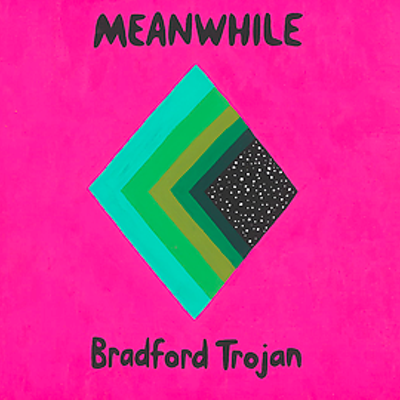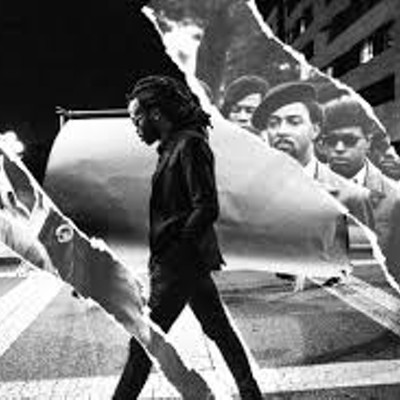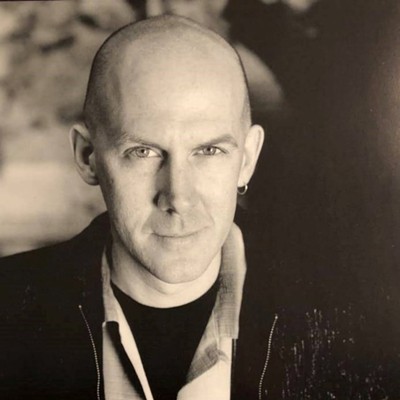The noisy Los Angeles band No Age finds itself firmly lodged in the middle of a Venn diagram, says guitarist Randy Randall.
"It's weird—well, maybe not so much—but we make music where the avant-garde, punk rock and pop cross over, and that has always been our favorite kind of music to listen to as well," Randall says during a recent telephone interview.
Randall's partner is drummer and vocalist Dean Spunt. The two started No Age five years ago in the wake of the demise of the hard-core band Wives, in which they both played.
"I mean, we both grew up listening to punk rock," Randall continues. "That was really what got each of us interested in music from a young age, but we are also fond of classic pop structure and melody. In No Age, we do both and mess around a little with it. I guess you can call that artsy, in a way."
No Age will play Saturday, Jan. 8, at Club Congress in an all-ages show. Also on the bill will be opening act Rene Hell, the latest stage name of prolific electronic-noise shaper Jeff Witscher, whose newest recording is the daring and enigmatic Porcelain Opera.
Randall hastens to add that what he considers pop music may not conform to the general concept of pop.
"We're also fans of pop songs that are classically structured and very melodic, but at the same time, not predictable—bands like Squeeze, Elvis Costello and Nick Lowe. I mean, one of my favorite pop songs ever is 'Marie Provost' by Nick Lowe. It's pop, but it doesn't lead you around by the nose."
Randall even likes some 1960s and '70s bubblegum pop that was played on Top 40 AM radio. "You can dance to that stuff, and it's disposable, but you don't feel like a tool listening to it, whereas the stuff that passes for pop music on the charts today is mostly empty."
It's a surprising turn in a conversation with the guitarist in a band that does more thrashing and howling than it does singing. But No Age approaches punk-style noise in an old-school, dada-esque manner. And you don't feel like a tool listening to their music.
"I should hope not. I hope you feel intelligent and engaged after listening to our songs, but there's also something to be said for a raucous good time. We definitely hope to get your body bouncing, and you still respect yourself in the morning."
No Age borrowed its name from the title of an album of instrumental punk and rock music that was released in 1990 by SST Records. It turns out that Randall and Spunt both were fans of '80s SST bands such as Hüsker Dü, the Meat Puppets, Minutemen and Black Flag—all groups who combined art rock, hard-rock and punk in various ways, and did so without ignoring a pop sensibility. "I think Black Flag was at its heart a pop band, even though they played what most people thought of as hard-core punk," Randall says.
The album that inspired No Age's name felt, to me, at the time to be an aggressive instrumental reaction to "new age" music, but the band's name in 2010 seems to connote a timeless sense of not being connected to any trend or era.
Randall has forgotten what the term No Age even means to him: "At this point, it's like air. It's just there."
Even the most familiar band names—The Beatles, for instance—must have at one point sounded strange. "Back when they started, I'll bet there were people who said that's an odd name for a band."
Ultimately, Randall thinks "No Age means doing your own thing. It just means not being beholden to any other overlying sensibility."
In addition to several EPs and singles, No Age has released three critically acclaimed albums: Weirdo Rippers, which compiled five EPs and singles, in 2007; Nouns, in 2008; and 2010's Everything in Between.
The latest recording is No Age's best. Spunt and Randall have combined their influences into an instinctive, artful take on cacophony and infectious melody, not to mention barreling momentum. It takes a few listens before you can grasp the subtle genius behind No Age's crash and bang.
"For me, I have a hard time listening to things that are really straightforward. I tend to overanalyze, so I need to hear something that comes at you from odd angles before it slips inside your consciousness. The songs that resonate the most are songs that are a little hard to read at first."
Randall invokes the spirit of another former SST band: the mighty Sonic Youth. "That was a huge band for me as a teenager, but at first, I hated it, because all I heard was all this feedback. But something kept drawing me back to their music, and I finally realized they're geniuses."
No Age's sound has been called "lo-fi," a term that refers to a recording process that isn't technologically advanced and sometimes includes flaws such as distortion, hum and limited frequency response. The sound has become an aesthetic choice for some acts.
But Randall says No Age can't be pigeonholed as easily as that. "The lo-fi label was something attached to us from early on, probably because when we made our early recordings, we weren't in a financial position to have access to high-fidelity recording environments. But we're not a lo-fi band, and that's not a medium that defines us.
"Sometimes, still, we want to make a really raw recording, but just as often, we make really polished and clean recordings. So it's just whatever the record or the song calls for."
Even though No Age's music is based primarily on the interplay between Randall's guitar and Spunt's drumming, they employ a generous helping of electronic samples to bolster their sound. On stage, the band features a third member, Facundo Bermudez, who helps trigger a wide array of sound effects and samples.
Bermudez "has been a friend of the band a long time," Randall says. "We have worked with him often. He played a large part in the making of our first record, Weirdo Rippers."










